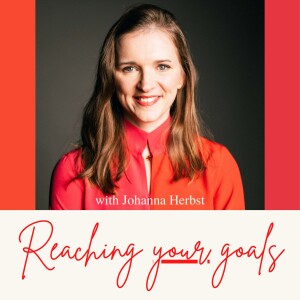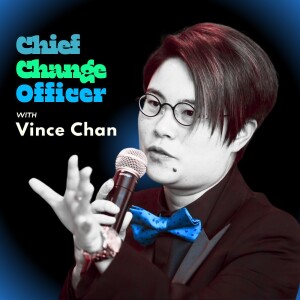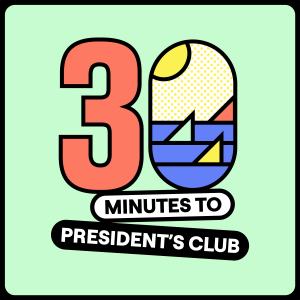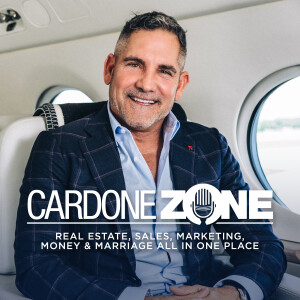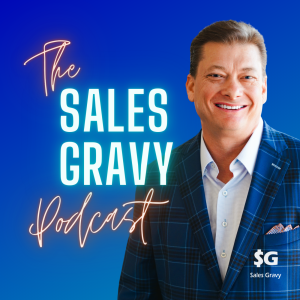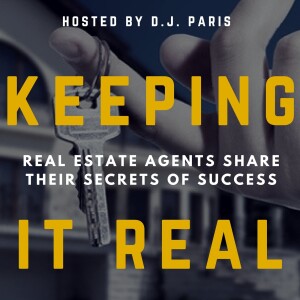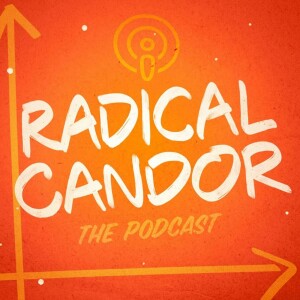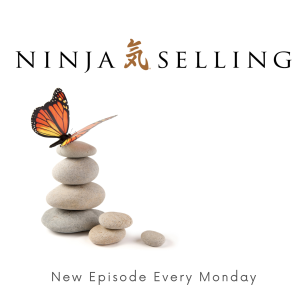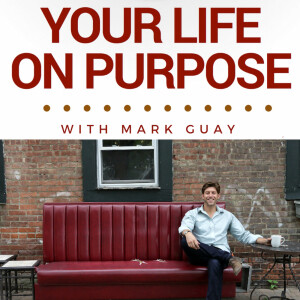

Your Life on Purpose
https://yourlifeonpurpose.libsyn.com/rssEpisode List

Hard Choices on Purpose
The other day I talked with someone who read my article about living inspired (and therefore “in spirit”). Like what often happens, we talked BIG PICTURE. Like a 'I only have so much time on this earth and what I do with my time matters' kind of conversation. When I asked him a question that Dr. Wayne Dyer often asked (“What’s your intention?”), he spoke about his desire to build a legacy. He doesn’t care about whether or not someone will remember his name, but wants more than anything for people to benefit from his life’s work down the road, well after he leaves this life. He wants to create something that matters. And something tells me you do too. Much like how you may not know Thomas Edison, but you surely will benefit from using a light bulb. Or how you may never have heard of Tim Berners-Lee, but you surely will have used the World Wide Web. Or you may not know Elon Musk, but you certainly have used e-commerce (i.e. Paypal). He’s also the guy behind sending monkeys to Mars (i.e. SpaceX), bringing the electric car to mass production (i.e. Tesla), and cladding our homes with solar panels to fuel our energy use (i.e. SolarCity) I understand this drive to build a legacy that matters. That’s the hero inside of us calling. Screaming. Reading to be activated and charge into legacy-building combat. But being a hero on this level requires some hard choices. The man I sat there having this conversation with happens to also have a beautiful two-year daughter, a loving wife, and also is a co-caretaker for his parents. Would building an epic legacy mean that he can’t also play these equally important roles? History teaches us that’s not so easy. In Walter Isaacson’s biography on Steve Jobs, he equally celebrates the genius gifts that Jobs has given all of society while also exposing that in his formative years at Apple, he was an absent father and husband. It wasn’t until his later years and the birth of his son Reed that he began to take his family role seriously and did a 180 degree turn. He quickly switched from staying late at Apple to being home every evening for a meal with the family. But this was after he had already established his legacy at Apple (and Pixar). A similar story goes for Elon Musk who has achieved extreme success. Musk is notorious for spending so much time on his projects that he is absent in his role as family man. His ex-wife, Justine Musk, wrote very publicly about how difficult it was to be married to someone so devoted to his work. On her popular blog, she wrote that “Extreme success results from an extreme personality and comes at the cost of many other things.” In this case, it was the cost of their marriage. But do you have to give up being a loving partner and parent because you have such an internal drive to create something that matters? Of course not. Just ask my friend Stephen Tracy. For the past several years, Stephen has held one of the most coveted positions by millennials all over the world. Tracy held a high-level position at Google. He scootered between meetings, traveled all over the world on the company dime, and filled his belly with Google’s free delicious food. While working at Google, Tracy’s spirit kept egging him on to leave Google and start his own project that matters. Besides, Tracy’s position at Google required a tremendous amount of time. Time that Tracy couldn’t choose how to use. And that time included being away from his husband. So Tracy had a spark of insight and lit his entrepreneurial candle, quite literally. He made the hard delicious on purpose to leave Google and start up a for-purpose candle company. Tracy has a tremendous love for his former employer, Google, but has not looked back since taking the leap. When we sat down for a chat, he said: “I've found so much more purpose in every single day since leaving Google. The biggest change is in the alignment between how I want to spend my time, and how I actually spend my time. Now I choose where my time and energy goes. I feel liberated, empowered, and excited by the future. It's been the best decision I ever made.” Tracy partnered with his husband to create KEAP and just recently launched on Kickstarter, already raising well over their 25k goal! —- So, what about YOU? As you activate the hero within and walk your heroic journey, how do you choose to spend your time? It’s the age-old question of work vs. life balance, but with the entrepreneurial revolution that’s upon us, finding this balance is quite difficult when it’s your work that brings you life. And now, I need to make a hard choice on purpose. This episode will be the last episode for season 2. Season 3 will be here before you know it, but in the meantime I have to press pause on the podcasting fun for a little while. Of course, I want to hear from you. What do you want to see in season 3? Also, if this happens to be the first time you’ve tuned into the show, make sure to listen through the over 90 episodes that nearly 100,000 thousand people have listened to. And if you haven’t checked out yourlop.com yet, make sure to sign up for my newsletter. And lastly, I will be creating more meditations because i’ve been touched to see that over 30 thousand people have listened to the meditations I created on Insight Timer. How awesome is that!? From the bottom of my heart, thank you so much for joining me on this journey and I seriously look forward to season 3. It’s a beautiful time to be alive and I thank you for joining me on the stage.

You Are What You Read
On today’s episode, I’d like to talk about quality over quantity when it comes to the information you hear throughout your day. With literally millions of books published each year (traditionally, not even counting self-published), along with all the many articles that circulate around our social media channels, just how do we know we’re actually reading high-quality information and not just product-placed marketing mediocrity? Or worse, how do we know that we’re not just feeding our own confirmation bias and growing ignorant in our own little bubble? If you’re like me, you love to read information: data, case studies, new theoretical research findings, tips and tricks, and so on. But we only have so much time! Unlike the world Before Google (B.G.), the problem now is not finding an answer when researching a question, but rather sifting through the abundance of information. There’s just so much! The thing is, when it comes to making major life decisions like choosing a new career path, a new area of study, or embarking on a new hero’s journey, what we read directly and what we listen to significantly influences where we point our feet. So, how do we know if what we’re actually reading is of high quality? Here are five questions to consider whenever you dig your nose into some prose. Who is the Author? Whether you’re reading a major blog syndicate like The Huffington Post, New York Times or Elephant Journal or you’re reading someone’s personal blog, dig into the author’s background. Most of the time, all you need to do is just copy and paste the author’s name into Google. You’ll find that most writers for these platforms are like me (and perhaps you). They run their own media platform because they have a message they want to share and then guest-post on these larger sites to help grow their reach. In the old days, an author was merely credible depending on what college they graduated from. Now…not so much. A degree is only one source of establishing ethos (or credibility) and unfortunately a college degree doesn’t mean as much anymore (even if it’s Ivy League). Take a microscopic look into the reader. What did she study in school? What is her life’s work? What books do they cite in their work? Just understand that every author has an inherent bias due to his own background. Where is the Source of The Information? Just like we shouldn’t trust a commercial that boasts some new research study that proves this new magical healing pill (because the study was very likely funded by the same company that sells the pill), we shouldn’t trust any advice we read without looking deeper into the source of information. In academia, the most credible of sources are peer-reviewed articles: articles that have been written by professionals in a field then critiqued and revised by other professionals in the field. Unfortunately, these are often very dry articles that are no more fun to read than watching paint dry. Traditionally in academia, the lowest credible source is a subjective opinion like what would be found in a personal blog. These, however, are often the most enjoyable to read because they have as much flair as Barbra Streisand on Broadway. This is where it comes down to purpose. What are you reading for? If it’s for an academic article, then stick to peer-reviewed articles. If it’s for personal growth or entertainment, then most often a blog with a unique voice will stand out. Is This Long Form or Short Form Content? Trust me, I understand the limits we have on our time. Most people are only able to read a few articles a day or listen to a short podcast episode on a morning run. Reading a book or listening to an entire audiobook can be daunting. Understand though that a 750 word blog post or one podcast episode will rarely dive as deep as a full-length work. Sure, you can squeeze the message in a book into one-liners, but doing so is like going swimming in a kiddie pool. It’s fun to splash around, but you can’t really go for a swim. Did a Company Pay for This? Many companies have jumped on the inbound marketing bandwagon to grow their business. And why not? It’s a great long-term affordable marketing strategy. How it works is that a company hires writers (sometimes in-house staff, but most of the time virtual assistants through 3rd party companies) to write 2-3 articles per week, if not more. Using rich long-tail keywords, the company’s goal is to land that coveted first page ranking in Google without having to spend a cent on pay-per-click (PPC) advertising. And it works…for the company. The content, however, is typically mediocre and incredibly biased. Why? Because the whole purpose behind the content is to drive users to the company website. Not all company blogs are bad, however. I’ve helped a number of companies build up their blogs. The better company blogs focus less on rich long-tail keywords and focus more on sharing customer stories or personal employee experiences. Is this Click Bait? When you’re reading online, if you have to “click to read more” that’s a volcanic red flag. Website owners do this typically for a “top ten” list or something like it. Every time a user clicks to read more, a new series of advertisements fill the screen and the company behind the website gets paid a few more dollars while your valuable time gets wasted. — We live in a beautifully connected world where anyone with a keyboard can share their story with the click of a button and we can read a personal blog (or watch a Youtube channel), pick up a copy of a major newspaper, or dive into a peer-reviewed scholarly book. We live in a world of abundant choice and it’s a beautiful time to be alive. But in this world of abundance comes the art of choosing. We need to choose carefully what we listen to and read. In college and as a teacher, I’ve often stressed that high-quality information comes from long-form content that’s backed with cited peer-reviewed research. I still believe this holds true for academic writing. Take, for example, my latest read: Lisa Randall’s Dark Matter and the Dinosaurs: The Astounding Interconnectedness of the Universe. But there’s certainly something beautiful in reading personal writing backed by nothing more than life’s magical experiences. What about YOU? I’d love to know how you decide to take in your content information. Wishing you all a beautiful week ahead, full of love, light, and adventure. Just remember, life is a dance.

3 Questions to Find Your Purpose
Dr. Dyer was a bit obsessed with the work of Abraham Maslow, the founding psychologist who introduced the theory of self-actualization to the world. It’s the concept where a person needs to fulfill certain biological needs before one can work on developing into higher consciousness and evolve into the greatest version of oneself (and then sharing that genius to better the world). Before someone can start thinking about “What’s my purpose?”, for instance, they need to have a steady supply of food, shelter, water, and feel safe. As I was listening to Dyer’s memoir, I started thinking about my own path and while it’s been incredible receiving emails from people all around he world who have been touched by my writing, lately I’ve felt like I’ve just been going through the motions. So, I’d like to share with you three questions I developed in my journal writing this morning. My hope is that it will inspire you as much as it helps me be confident on my own path. Who am I Serving? Dyer said that the answer to the question “What is my Purpose?” is always the same. Your purpose is to serve others. It’s as simple as that. The trick is to find out what you (and only you) can serve to others. That means activating your unique genius and opening it up to the world. Our amalgamation of unique experiences have molded us into who we are today. We all have a beautiful story, full of “coincidence”, that led to you developing your unique genius. It’s up to you whether or not you’re willing to offer it to others. Are you willing to share your unique genius with the world? For me, I’ve learned that I have a unique talent to help people feel comfortable sharing their own stories. Because I am so open with my story and my struggles, I allow other people to be real and vulnerable. What am I Creating? In The Artist’s Way, by Julia Cameron, she says that finding a sense of purpose in life comes through creating art. Cameron argues that so many people in the rat race of a 9-5 get caught up in constantly serving others through either parenting, working a job that doesn’t fulfill the soul but provides a pay check, or maintaining our possessions (i.e. home, car). We all need to find time to create art, says Cameron. This could be crafting a compelling article, painting, singing, dancing, or building a desk. When we create art, we’re activating our innate form of self. We’re tapping into the divine source of creation. So, take your self on a date. Cameron suggests that even the busiest of people can find time to create art. Once a week, find a time (and put it in your calendar) to take your artist self on a date. It could be only for 20 minutes or so, but it’s focused time on inspiring the artist that is within all of us. If you played trombone as a kid and stopped playing it when you became a parent or starting working a 9-5, spend twenty minutes with your trombone or listen to a your favorite music artist. If you painted as a kid, but haven’t picked up the brush and easel in years, spend just twenty minutes putting paint on white canvas. See what happens. It doesn’t matter necessarily what you create. You can erase your writing or even throw out the painting when you’re done if you want. What matters is that you consciously spend time with your artist self. You take part in the act of creating art for the sake of saying hello to the artist that lives inside all of us. What am I Scared of? What’s often not talked about with Maslow’s research is that self-esteem needs to be fulfilled before someone can play in self-actualization. We talk ourselves out of things that can have the most impact in our lives. Like Jay Stolar pointed out to me, so often we just need to get out of our own way, I see this all the time with college students who enter the university and take “the safe route” because they want to make sure that their degree will guarantee a paycheck that will pay back student loans and provide for a future family. But I think we’ve all learned that there’s no “safe” degree. We all know MBA graduates who still haven’t landed the coveted CEO position, right? Five years into a job that doesn’t fuel their soul, many students often come back to tell me that they’re thinking of going back to school to go into a career that fuels their soul. We can’t ignore our souls. Our internal intention is with us all the time. It’s up to us to recognize it, shake hands with it, and empower it. What about you? These are the three questions I asked myself this morning. What questions help you steer you down your path on purpose?

Breaking Through Personal Limitations
“The agony of breaking through personal limitations is the agony of spiritual growth. Art, literature, myth and cult, philosophy, and ascetic disciplines are instruments to help the individual past the limiting horizons into spheres of ever-expanding realization.” - Joseph Campbell It’s entirely normal for us to run into some sort of wall in our lives, whether that’s in the work that we do or in our personal lives. Remember though that feeling like you’re in a rut is actually a good thing. Why? Because you’re aware of the rut in which you are in. And that’s no easy truth to acknowledge. David Foster Wallace made that quite clear when he gave his “This is Water” commencement speech: “It is extremely difficult to stay alert & attentive instead of getting hypnotized by the constant monologue inside your head.” So, how does one break out of a rut and push through personal limitations? Try this, Take Your Artist Self on a Date The whole purpose of art is to evoke awareness in another, to break a mold, to get someone to think. So, take your artist self on a date. Yes, seriously. I repeat. Go ahead and take your artist self on a date. Julia Cameron, the author of The Artist’s Way, argues that when we take our artist self on a date, it helps us think beyond our own barriers of thought. So, what does this look like? Consider like I did last week and go to an art gallery with a notebook to write down your thoughts on a few pieces that call to your attention. For instance, last Sunday I went to COSM, a beautiful new-age art gallery which displays Alex and Allyson Grey’s psychedelic artwork. The Grey’s work is awe-inspiring at least with huge paintings that take cubism and turn it internal. One image stood out to me in particular: a beautiful painting of a woman nursing her child that shows the outside, inside, and ethereal energetic systems of both the mother and child. Okay, I honestly cannot put their art into words, so take a look here to see what I mean. For one hour, I walked around the art gallery (both indoors and out) and then sat down with my notebook to write a poem, then a journal entry where I flushed out my thoughts. It was only an hour, but it was enough to tilt the way I look at things. Consider taking your artist self on one date this week. The only criteria is that you go alone. Go for a walk through nature, visit an art gallery, go to the library and read something new, or just walk around a new neighborhood to break routine. Read a Challenging Text Even if it’s just 30% of a book, consider checking out a book on something you know absolutely nothing about. It’s amazing, right, how reading from the comfort of an arm chair can get the mind to travel? For example, I knew very little about organizing and picked up Marie Kondo’s book, Spark Joy, and it has opened my mind to the freedom that comes from tidying up our lives. Stoic Discipline When I read the ancient Roman philosopher Seneca’s letters, one thing stands out to me. And that’s the habit of discipline in which Seneca professes. Seneca argues that if we discipline ourselves to experience a worst-case scenario for a short time, we no longer allow fear of that scenario to control our lives. For instance, if you fear losing your money, say from leaving a salaried job to pursue an entrepreneurial dream, then Seneca would suggest you experience living in poverty for a short time, from one day to one week. Or you could try living off a dollar a day like two college students did in the powerful documentary, Living on One Dollar, but I understand if that’s not in your cards right now! Or if living off of rice and water scares you, consider trying it just for a day. Once you shake hands with that which scares you, it no longer has any control and this propels you further down your path on purpose. Philosophical Inquiry Consider joining a group at a local coffee shop that dives deep into philosophical inquiry. Doing so forces us to think outside our own confirmation bias. Meaning, while surrounding ourselves with empowering people is great, doing so traps our thinking into a bubble. Do people actually do this, you ask? It turns out, yes they do, and it’s gaining in popularity. Socratic Cafes, a meet-up that engages in Socratic inquiry, continue to pop up in neighborhoods across the world. For instance, I joined one such discussion at a library in New York City where we discussed what it means to live authentically. And boy was it a unique evening because of the variety of people who showed up. Who showed up to chat? One college professor at Columbia University, a few homeless who live on the harsh streets of Manhattan, one middle-aged woman in need of career change, a couple college students, and a marketing consultant. We disagreed more than we agreed and had a heck of a time doing so. One thing is for sure: I walked out of that discussion with my head spinning with new thoughts. Leveling Up Mastermind Consider creating a small mastermind group of 3-5 people where each of you has a similar goal: to launch a business, to create a podcast, to better your teaching practice, to be a better mother/father, for a few examples. The thing here though is to have one A-level person in the group who has pushed through the barriers you are working to push through. For instance, if you are working to launch a new business, ask someone to join the group who can coach you all through the difficulties in starting up a new business venture. Do you need to pay them? Most of the time, no. They will equally gain much from the mastermind because here’s a secret: When you teach something, you really, really, really, actually learn it. Teaching concretizes learning. Sometimes though, it does pay to hire a coach who will mentor your group to push through the barriers. This holds true for sports just as much as it does for personal growth. ------------- What about you? Which of these tips ring true for you, if any? Like always, I’d love to hear from you and learn of other ways to break through personal limitations. Wishing you all a beautiful week ahead, full of love, light, and adventure. Just remember, life is a dance.

Affirmation from Within
On this episode, let’s dig into affirmation and how we can find affirmation from within. Because really, The affirmation you need comes from within, not from what someone else tells you. — Even before writing legend Stephen King sobered up, he would keep the door shut tight to his writing studio. When he felt his writing was ready, he’d open the door only to his wife whom he donned his supreme editor. King has what he calls “closed-door writing” and “open-door writing”. Closed-door writing is the crap, the stuff that he doesn’t want anyone to see. It’s the muck that all professionals and top-performers still muddle through to create something of high value. It’s what Anne Lamott would call the “shitty first draft” in her book on writing, Bird by Bird. (One of my personal favorite reads). To move beyond the first crappy draft, King finds the affirmation he needs from his wife. He describes in his book, On Writing, a scene where he gives his wife a manuscript on a road trip and she reads it in the passenger seat while he drives. He describes biting his nails in nervousness as he waits for her to laugh or gasp when he knows she’s at certain parts. If she doesn’t laugh, he questions whether or not it’s actually funny or not. If she doesn’t gasp at a horror scene, then he questions whether or not it’s actually well-written. Perhaps you can relate? When are there moments your confidence depends on the approval of others? This is The Fulcrum of Affirmation. It’s the place we reach when creating something new and look for affirmation. This affirmation brings us through the turning point on our hero’s journey. But I’m reminded of what Dr. Wayne Dyer teaches us through his book, The Power of Intention. Dyer writes that it’s incredibly important to find your affirmation from within. He says that living your life on purpose has everything to do with living out the best version of yourself, not following dogma or constantly caving to peer pressure. Living your life on purpose is the effect of tuning into who you really are. Dyer says that if you have a passion for something like fixing cars and have developed a talent for it and the community really needs a stellar auto mechanic, then yes, of course, being the best auto mechanic you can be is your tried and true purpose. But if you don’t want to be an auto-mechanic or a doctor or a lawyer or (Fill in the Blank), then perhaps it’s time to dig deeper to find your purpose. (pssst...it's okay to reinvent and redefine yourself at any time you'd like) Here are three tips to find the affirmation within to live your life on purpose. We are only a reflection of those we keep close to our heart. We’re a social species. We thrive on relationships and seek connection with others on emotional, platonic, and physical planes. We learn best through what pedagogy wou ld call “Constructive Learning,” meaning we learn best through connecting with others. Before the days of smart-phones and industry, we sat around the campfire and told stories at night, sharing in that day’s feast. But we’ve since lost this aspect of ourselves as storytelling animals and are inundated with messages from the media telling us what we should look like, act like, and model. We've moved from a campfire society to a billboard society. So how can we be picky with who we allow into our sphere of influence? The truth is…it’s not so easy. Our parents, religious leaders, teachers, friends, community leaders, and others offer what they believe to be the best advice. And this advice comes from a source of love, but this energy can strongly influence the way we make decisions. People often ask me how I am such a positive person, an optimist they say. I tell them that I am only a reflection of those I keep close to my heart. Even when I’m making a decision on my own and not asking for anyone else’s approval, the decision I make still stems from those I’ve allowed to help build my sphere of influence. The books I’ve read, the people I admire, the conversations I have with others, and the lessons I’ve learned from my sphere of influence all morph the decisions I make. For me, I try to surround myself with positive people because I know how easy it can be to be held down by fear and negative thinking. I’m picky about who I let into my sphere of influence. So, even though you may not have complete control over your sphere of influence, who and what do you personally invite into yours? Meditation I forgot who it was who said it, but meditation allows us to experience what the other senses cannot. It helps us tap into our intuition. Meditation gives us control. It teaches us when to dance with our thoughts, when to sit still, and when to be an observer. It’s ironic, isn’t it? That the art of sitting still in meditation helps control our outward actions and reactions? Staying still helps to make more precise movement. Moreover, it’s been said that meditation opens up the third eye which points inward and is said to help reflect the divine spiritual truths inside of us. When our third eyes are open and not blurry, it’s easier to tap into the spiritual truths. It’s easier to find the affirmation from within. Say No to FOMO and Ship So often I find myself caught in FOMO: the fear of missing out. If I don’t do this, will I be missing out on an incredible experience? If I commit to this project, will I be missing out on another one? or If I don’t commit to this project, will I be missing out on my big break? Especially when it comes to affirmation, we sometimes don’t take action when we think that there’s something bigger and better out there. We look for affirmation that we’re on the right path. But fearing to miss out on something stops us from even experiencing what we have right here in front of us. Getting caught in the rabbit hole of FOMO is the rat race and stops us from shipping our best ideas. It’s another name for the thing that many of us try to avoid getting caught in -- the daily grind. Whenever FOMO pops up ask yourself, Am I living in the present or caught in a hypothetical future? Am I creating or procrastinating? Many of us go to our graves with the best ideas still trapped inside of us. Use this imagery as the catalyst to help you commit to ship your idea and move forward. — What about you? Like always, I want to hear your thoughts. Just hit reply and say hello. I’ll be sitting here finishing my coffee and reading before diving into experiencing the day.
You may also like
Create Your Podcast In Minutes
- Full-featured podcast site
- Unlimited storage and bandwidth
- Comprehensive podcast stats
- Distribute to Apple Podcasts, Spotify, and more
- Make money with your podcast
